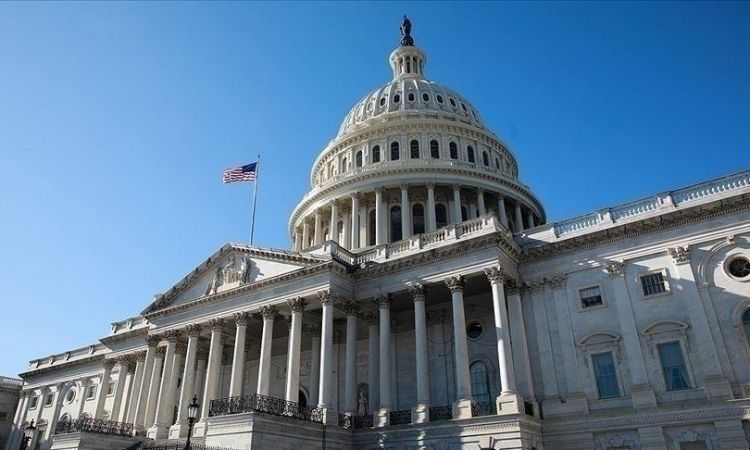The US House of Representatives passed its version of a comprehensive measure establishing policy for the Department of Defense on Friday, but the likelihood that the “must-pass” legislation would actually become law was in doubt since Republicans added many racially conservative amendments.

The National Defense Authorization Act, also known as the NDAA, which establishes Pentagon policy and approves $886 billion in expenditures, was approved by a vote of 219 to 210.
In contrast to the bipartisan support that has typically been shown for a statute that has been approved every year since 1961, the vote was primarily divided along partisan lines.
The US House proposal gives military personnel raises, funds counter-China operations, and provides $300 million more to help Ukraine fight off a Russian invasion in February 2021.
After the Republican-dominated House voted on Thursday night for amendments on contentious social issues proposed by the party’s hard-right wing, Democrats warned during the discussion that the majority of them would not support the NDAA.
An amendment to abolish the Defense Department’s practice of paying for military personnel’s travel fees to get abortions was approved by the House by a vote of 221 to 213 votes.
The historic Roe v. Wade ruling that established a constitutional right to an abortion was overturned by the US Supreme Court last year. Abortion is still legal in several places, despite recent efforts in some states to impose considerable new limits on it.
The purpose of the Pentagon’s travel reimbursement program is to assist military personnel and their families who are stationed in jurisdictions that forbid abortions but who need one.
Representative Barry Loudermilk, a Republican, referred to the conservative amendments that were approved: “House Republicans today passed an NDAA that increases our military’s lethality and decreases the wokeness that has been infused in its ranks in recent years.”
The senior Democrat on the House Armed Services Committee, Rep. Adam Smith, issued a dire warning: “We are going to have fewer qualified people willing to join the military because of what was passed” during the acrimonious amendment procedure.
Additionally, the House voted 222-211 to forbid the Pentagon from covering the cost of hormone therapy and gender-affirming operations.
Coming Senate Debate
Without Democratic support, House Republicans were able to pass their changes, but as President Joe Biden’s fellow Democrats possess a 51-49 majority in the Senate, such restrictions would be defeated there.
Tuesday will see the start of the debate in that chamber.
Later this month, the Senate is anticipated to pass its version of the NDAA, after which the two chambers will negotiate a compromise that will be put to a vote later in the year.
The NDAA, one of the few significant pieces of legislation that US Congress adopts each year, is keenly followed by a wide range of businesses and other interests since it governs everything from the acquisition of ships and aircraft to soldier pay raises and how to respond to geopolitical threats.
The eventual “conference” between the House and the Senate to craft a compromise bill is anticipated to be highly difficult.
Marjorie Taylor Greene, a Republican representative, for instance, issued a warning on Friday that she would attempt to have the authorization for more funding for Ukraine removed. She told reporters, “That’s my main objective. Senate negotiators were anticipated to put up a strong battle to keep such spending, though.















